30 Minute Rule: The Right way To Stay Hydrated Post-op
Medically Reviewed by Katelyn J. Mock, US-Registered Dietician (R.D.)
After you’ve had the weight loss surgery, a question that springs up in your mind is – “Do I really have to wait 30 minutes to have water/any liquid before and after my meal? If yes, why?”
The reason for all this waiting is to get the most out of your healthy post-op diet. Food is fuel! Starving for weight loss is out of the question. It doesn’t really help you lose weight or maintain your post-op weight. Your main concern should be to exercise portion control after bariatric surgery to maintain weight loss. Also, practice serious lifestyle changes that follow weight loss surgery.
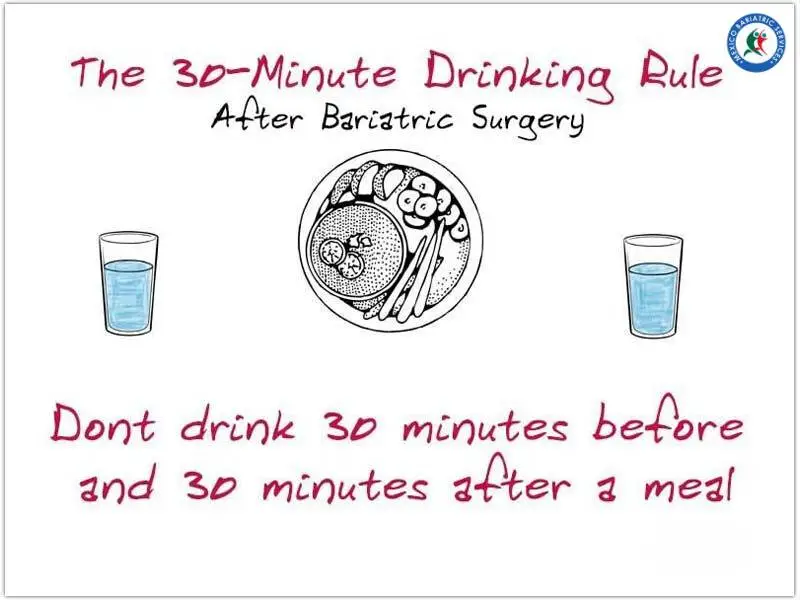
After your WLS, the food and liquids flow through your new baby’s pouch quickly, and the liquids flow even quicker. It is very important to stay well hydrated after weight loss surgery. It is even more important to sip water slowly at regular intervals.
If you are eating your meal and you feel full – stop and wait for 10-15 minutes before you begin drinking. There’s not enough room in that small pouch for sudden liquid intake after you’ve just had your meal.
Even a couple of tablespoons of water can throw you overboard. Imagine that’s the size of your post-op stomach!
- This could lead to discomfort, horrible tightening in the chest, a feeling of choking, etc.
- To avoid this discomfort, keep a gap between sipping fluids slowly
- Prefer fluids a few minutes before and after your meals.
Nutritionist’s Tip for Sipping Liquids Post Bariatric Surgery
If you are having a protein drink, a smoothie, or something that is a bit more substantial, wait for more than 20-30 minutes before you begin your meal.
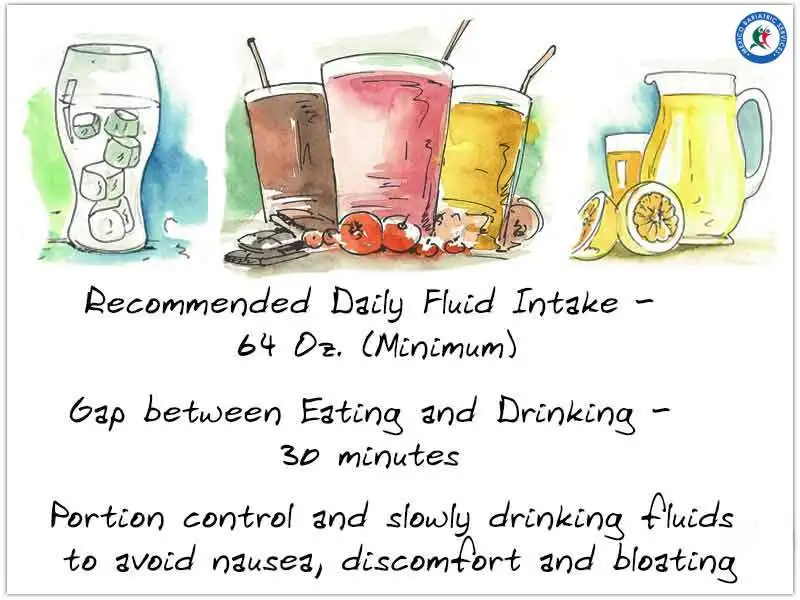
Hydration After Bariatric Surgery – Fluid Intake Tips and Tricks
Our US-registered dietitian talks about the importance of hydration after bariatric surgery and some hacks to meet your daily fluid goals. Also, note that hydration after dehydration is very important!
Hydration in the Summer
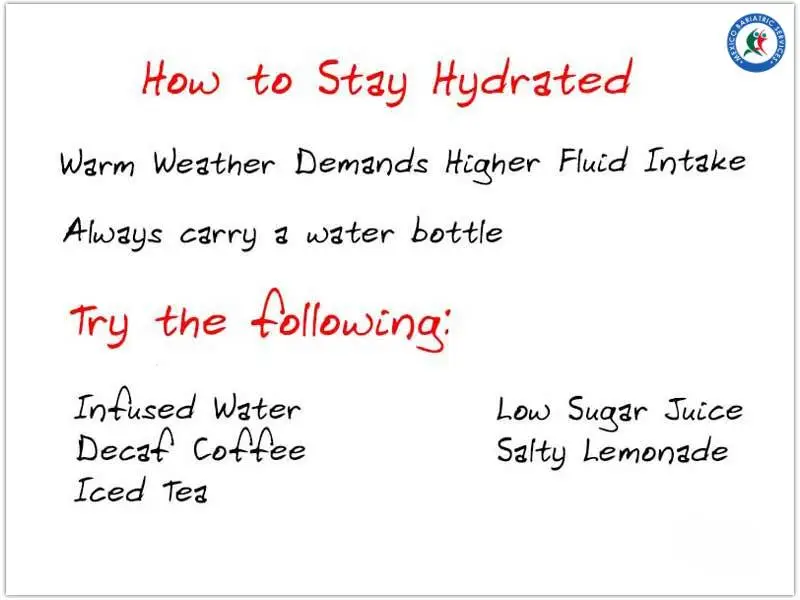
As the summer months roll in, it can be a lot harder to meet your fluid needs. Your body typically requires a lot more fluid with the warm weather. It can be a real challenge to meet those fluid goals.
- Make sure that you always carry a water bottle with you
- Be mindful of having sodas/caffeinated drinks that cause more urination
- Fluid Intake for Early Post-WLS Candidates
- Focus on taking small sips over the course of half an hour or so
- Keep in mind the 30-minute drinking rule to avoid encountering dumping syndrome
Why do I Have a Bad Time Drinking Water After Gastric Sleeve?
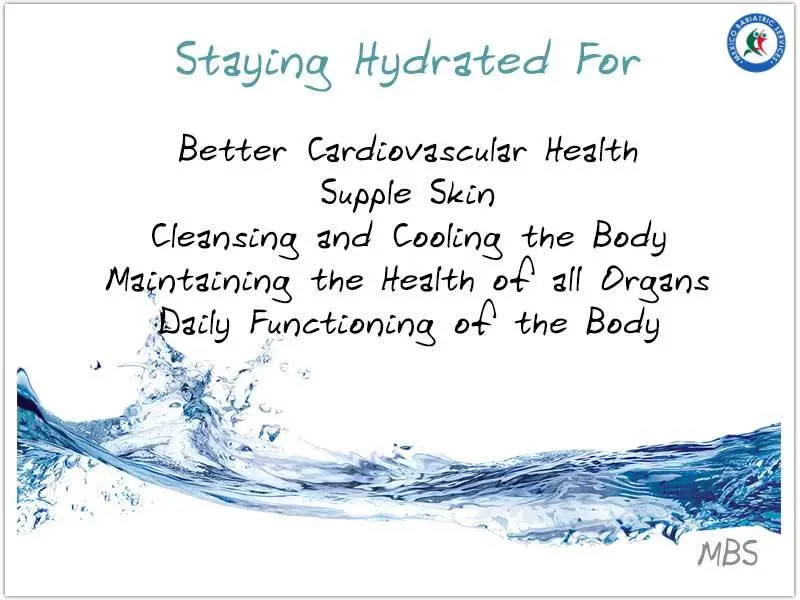
Trouble drinking water after gastric sleeve surgery is a very common side effect and normally goes away after a few months.
Keep the following points in mind:
- Liquids at room temperature are usually the best tolerated.
- It is fairly common for people to struggle with plain water.
- You could add a squeeze of lemon, lime or cucumber, and mint
- You could also have water infused with pineapple, blueberries, and strawberries, etc.
- Protein drinks, decaf tea, milk, etc., all count towards your total fluid.
Common Signs of Dehydration
- Dry mouth
- Dry skin
- Dark yellow urine
- Fatigue and dizziness
- Increased thirst
- Reduced urine output
Avoiding Discomfort After Drinking Water Post Gastric Sleeve Surgery
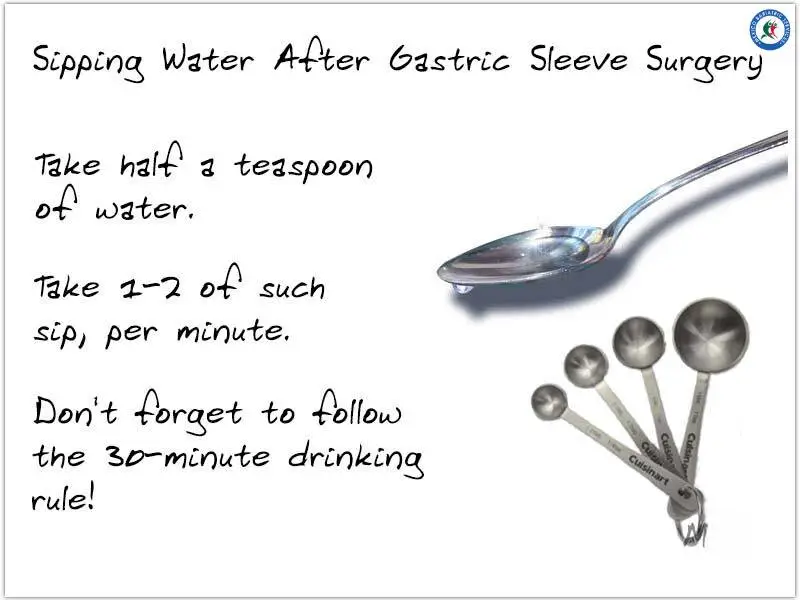
- Take 1/2 teaspoon sips or smaller with a spoon
- Take no more than 1-2 sips of fluids per minute
- Follow the 30-minute drinking rule
- Drink out of water bottles that have ounces listed on them
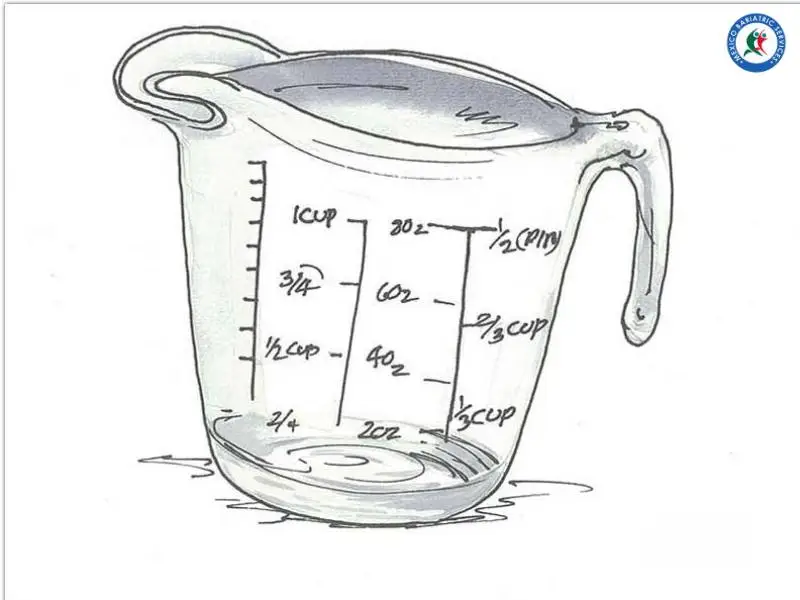
This Post Addresses:
- Eating and drinking together after bariatric surgery
- When can you drink after gastric bypass
- What can you eat after gastric bypass surgery?
- Why do I have to wait 30 minutes to drink after eating?
- Is it wrong to drink water immediately after eating?


Alcohol Drinks containing alcohol are often carbonated and always high in sugar. They are of no nutritional value. The absorption of alcohol significantly changes after surgery. It is absorbed faster and intoxication occurs sooner. If you do drink alcohol after weight loss surgery, keep in mind that you will reach the legal limit of blood alcohol levels much sooner than you did in the past. The surgeons at RMAP suggest that patients refrain from drinking alcohol. Talk to your surgeon about safe ways to consume alcohol.